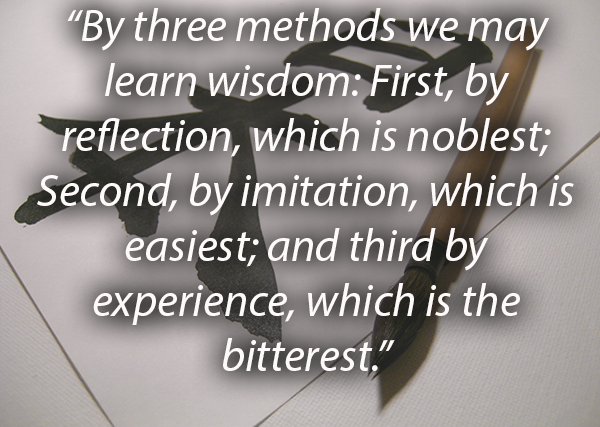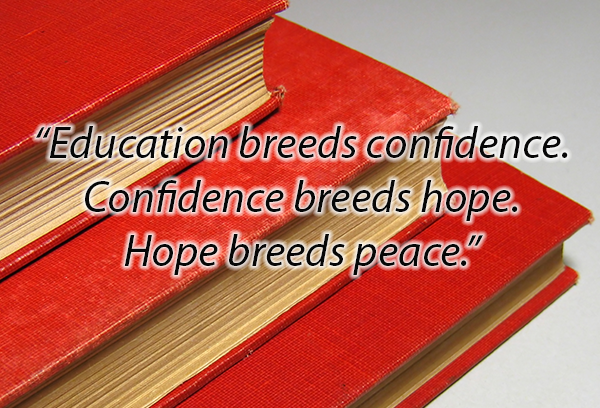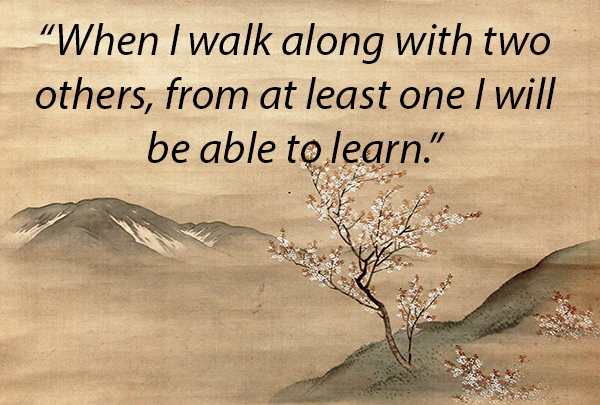
The world of education is changing radically and rapidly. Generative AI tools are now capable of writing essays, solving math problems, summarising textbooks, and even personalising learning experiences at scale. These capabilities have triggered a wave of excitement and concern about how artificial intelligence (AI) will reshape teaching and learning.
Yet in the rush to embrace innovation, we risk losing sight of something fundamental: education is not merely about acquiring knowledge; it is about cultivating wisdom. In a time when machines can process and reproduce vast amounts of information, we must ask: What does it mean to truly understand? Who are we becoming when we learn through AI?

For those of us drawing from humanistic traditions of education and intercultural philosophical heritage, especially Chinese thought, these questions are not new. But they are newly urgent.
Beyond information
Confucianism teaches us that learning (xue, 学) is not just about knowing what but knowing how to be. It’s a life-long process of moral cultivation and self-refinement, where the ultimate goal is wisdom (zhi, 智), an integration of knowledge, discernment, and ethical character.
This contrasts sharply with how AI ‘learns’. Large language models generate text by identifying patterns in data. They mimic understanding but do not grasp meaning. They respond, but they do not reflect. And they cannot ask the most important question: Should this be done?
Confucian learning emphasises the integration of intellect and virtue, not simply the efficient processing of content. We can trace similar approaches across cultures and throughout time. From the Takshashila University in ancient India and Socrates’ dialogue approach in classical Greece, to the Baghdad House of Wisdom and Oxford University, humanistic education has always emphasised values that lie beyond measurement: critical thinking, empathy, moral responsibility, creativity, and cultural literacy. These qualities emerge through dialogue, mentorship, contemplation, and lived experience, none of which can be replicated by even the most sophisticated AI.

In that sense, reducing education to metrics: test scores, time-on-task, or optimisation algorithms in the West, is a relatively new approach, perhaps introduced under the ‘mantra of efficiency’ that started dominating public discourse after the end of the Cold War. However, such an approach risks flattening our conception of what it means to learn – something that many educators have serious concerns about. This is why it is of the absolute priority to protect education as a space for moral inquiry, personal growth, and social formation rather than just performance.
This is especially important in diplomatic, political, and intercultural contexts, where AI systems often lack the cultural nuance, emotional sensitivity, and ethical depth required for responsible decision-making.
AI as a tool, not a teacher
We need to remind ourselves here that AI is not one single thing, and neither is education. Teaching mathematics to primary school children differs from teaching university students philosophy.
The good news is that there is a place for AI in education on both ends of the spectrum. Just as we can use technology to help learners adopt complex programming skills, smartly designed AI tools developed by experts in specific fields can even help students hone their so-called soft skills, from communication to negotiation, to argumentation. See, for example, Diplo’s Loaded questions AI assistant, developed to help students in our Diplomatic Communication course practice responding to tricky questions often favoured by journalists.
However, in all these cases, we must keep the role of AI as a supportive tool, not as a teacher. This is because technology (at least at this point in its development) cannot replace the relational and ethical dimension of education. The teacher-student relationship, so deeply valued in Confucian tradition, is not just about knowledge transfer. It is a moral and emotional bond, a space where values are modelled, habits are shaped, and wisdom is cultivated.
From ‘sage on the stage’ to ‘guide on the side’
In this light, the role of the teacher becomes even more vital. Not just as a deliverer of content, but as a mentor, guide, and ethical interlocutor. Teachers help students interpret the world, not just navigate it. They cultivate judgement, not just knowledge. Linking this to the traditional Confucian view, the role of a teacher is not merely to provide instructions and answers, but to serve as a model of moral integrity and intellectual humility, precisely what AI cannot provide.

This resonates well with Diplo’s approach, where we work hard in developing educational models that can help equip learners to engage with AI thoughtfully, ethically, and critically. Even though we put a lot of focus on the use of technology, we’ve always treated it simply as a (powerful) tool, a means of passing down wisdom, culture, and care, rather than just mere skills. To this end, we have been developing a new pedagogy focused on enabling participants to learn about AI with the use of AI, implemented for the first time in our AI Apprenticeship course.
Chinese philosophy reminds us that wisdom is not generated instantly. It is nurtured through ritual, tradition, reflection, and practice. As generative AI tools accelerate the pace of content creation, the educational world must respond not with faster answers but with slower, deeper questions. On the other hand, educators, in addition to presenting facts or techniques, must also teach young generations how to live, how to discern, and how to relate.
This is the true transmission of wisdom, one that no algorithm can automate or replace.
Author’s note: This blog post draws on reflections from the AI, Governance and Philosophy – A Global Dialogue journey.
Click to show page navigation!




